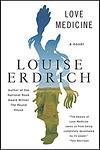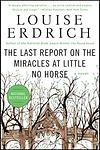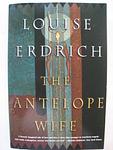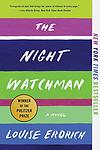Louise Erdrich
Louise Erdrich is a renowned American author of novels, poetry, and children's books featuring Native American characters and settings. She is a member of the Turtle Mountain Band of Chippewa Indians and her work often explores themes of heritage, identity, and the complexities of life within Native American communities. Erdrich has received numerous awards for her writing, including the National Book Award for Fiction and the Pulitzer Prize for Fiction.
Books
This list of books are ONLY the books that have been ranked on the lists that are aggregated on this site. This is not a comprehensive list of all books by this author.
-
1. Love Medicine
"Love Medicine" is a novel that explores the lives of several generations of a Native American family living on a reservation in North Dakota. The narrative is presented through a series of interconnected stories, each told from the perspective of different family members, and spans over 60 years, from 1934 to 1999. The book explores themes of love, family, identity, and the struggle between tradition and modernity. It provides a deep and poignant look into the complexities of Native American life and culture, and the challenges faced by the community.
-
2. Tracks: A Novel
The novel is a gripping tale set in the early 20th century that follows the lives of several characters from an Anishinaabe (Ojibwe) community in North Dakota, focusing on the struggles of Fleur Pillager, a young woman with a mysterious connection to spiritual and natural forces. As the community grapples with the encroachment of white culture, land dispossession, and the ravages of illness, the narrative unfolds through the perspectives of Nanapush, an elder striving to preserve tribal traditions, and Pauline, a woman of mixed heritage drawn toward Christian fanaticism. The book weaves themes of survival, cultural identity, and the complex interplay between human beings and the environment, revealing the enduring resilience of a people in the face of assimilation and adversity.
-
3. The Round House
A teenage boy navigates the complexities of life after his mother is brutally attacked on their reservation in North Dakota. As the legal system fails to bring justice due to jurisdictional issues, the boy takes matters into his own hands. The novel explores themes of tribal law, justice, and the transition into adulthood, all set against the backdrop of Native American culture and history.
-
4. The Night Watchmen
This novel is a powerful exploration of Native American life in the 1950s, centered around the efforts of a Chippewa council night watchman, who is also a former tribal chairman, as he fights against a Congressional emancipation bill that threatens the rights and identities of Native American people. Through a rich tapestry of interconnected stories, the narrative weaves together the lives of several characters living on a North Dakota reservation, including a young woman who moves to the city in search of a better life, only to face unexpected challenges. The book is a poignant examination of community, culture, and the struggle for sovereignty, imbued with the author's deep understanding of the resilience and complexities of Native American life.
-
5. The Last Report on the Miracles at Little No Horse: A Novel
The novel presents the story of Father Damien Modeste, a beloved figure who has served the Ojibwe Native American community at Little No Horse for over a century. As death approaches, Father Damien pens a letter to the Pope revealing his true identity; he is a woman named Agnes DeWitt who adopted the disguise of a priest after the real Father Damien died. The narrative explores themes of faith, identity, and the often complex relationship between Native American communities and the Catholic Church.
-
6. LaRose
In this emotionally charged novel, a man accidentally kills his neighbor's son while hunting and, in an act of ancient tribal tradition, offers his own son, LaRose, as compensation. The narrative explores the complexities of grief, justice, and cultural identity, as both families grapple with the loss of their sons and the impact of this decision. The story is set against the backdrop of the Ojibwe reservation in North Dakota, and the intertwining of the two families leads to unexpected relationships and the healing power of shared sorrow.
-
7. The Antelope Wife
The novel weaves a complex tapestry of Native American life, blending contemporary realism with mystical elements. It explores themes of love, family, and cultural identity through the interwoven stories of multiple generations affected by a legacy of trauma and healing. The narrative centers around two Ojibwe families in Minneapolis and the titular Antelope Wife, a mysterious woman with a profound connection to the spiritual and natural worlds. The book delves into the characters' struggles with their pasts, the power of storytelling, and the intricate bonds that tie them together, revealing the resilience and transformations that occur within their community.
-
8. The Night Watchman
This novel is a powerful exploration of the life of a Native American community in the 1950s, focusing on a determined night watchman who fights against a Congressional effort to dispossess his people of their land. Inspired by the author's own grandfather, the story weaves together the lives of several characters, each navigating personal and collective struggles amidst the backdrop of historical injustices. Through a narrative that blends the spiritual with the political, the book not only portrays the resilience and complexity of its characters but also offers a poignant critique of the policies that sought to undermine Native American identity and sovereignty.







